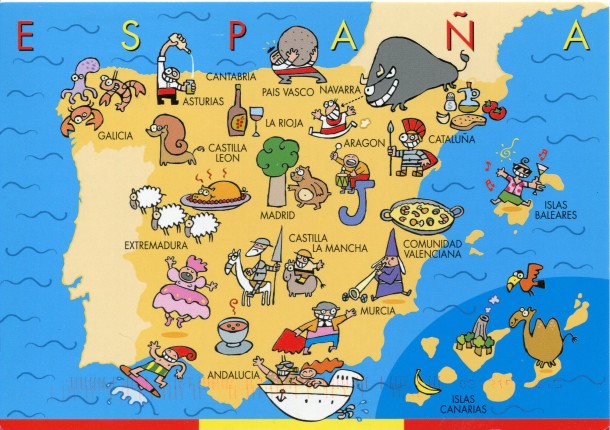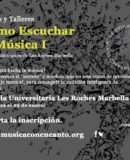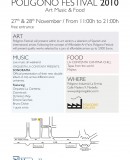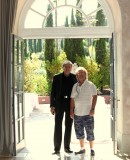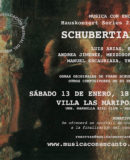What's Wrong with Spain?
WHAT’S WRONG WITH SPAIN?
AJ Linn
Those of us born elsewhere but who now consider Spain our home may not be completely happy with every aspect of life here, but we reckon it is better than most other places. Nevertheless, however integrated we are, we tend to feel that certain things, like corruption in public life, is tolerated to a greater extent than it should be.
Spain is placed 31 out of 183 in Transparency International’s country rating, but deserves to be downgraded pretty soon. It is more corrupt than northern European countries or the USA, possibly less corrupt than other southern European countries such as Italy and Greece, and is of course not nearly as bad as Latin America, China, Africa or India.
On the other hand the extent to which corruption has been spreading recently across the face of Spain like a flesh-eating virus has to be considered totally unacceptable in a modern European democracy.
Marbella’s ex-urban planning boss, Roca, together with Muñoz and other members of the group of delinquents in the Caso Malaya, inextricably linked to Jesús Gil’s methodical and premeditated rape of Marbella, will be sentenced in June. The King’s son-in-law will soon be accused of using his position to obtain money from phoney contracts and the Royal House is fighting a losing battle to maintain itself above suspicion. The Bárcenas affair, involving the highly questionable financial management of the ruling Partido Popular, is currently getting daily media coverage, implicating, as it does, those right at the top of the party. More than 700 regional and local politicians are currently at various stages of legal processes involving corruption. Around 100 municipalities are implicated. That said, politicians almost never go to jail no matter what they have done.
Even the sleaziest of the sleazy, Jesús Gil, was left relatively unmolested until he announced his political party would contest the elections in Spain’s conflictive North African possessions, Melilla and Ceuta. That caused the powers-that-be to get the judges onto his case and he was arrested for crimes committed in Marbella that had until then been ignored by the judiciary; who gave the order?
What happened to Gil is not a million miles from what happened to convicted banker-fraudster Mario Conde. Although he had served his jail sentence years ago, had most of his assets seized to pay fines, and written a book about his experiences, it was not until he announced last year that he would stand in the regional Galician elections that two large estates that had remained untouched throughout the legal process were suddenly embargoed. What invisible authority issues such arbitrary instructions in a supposedly transparent state of law?
A recent survey by national daily El País showed that 63% of Spaniards believe there is more political corruption than ever, and a staggering 95% distrust the justice system’s ability or enthusiasm for fighting it. In cases like the illegal financing of the Catalan party Unió, the main suspects were not put on trial until 16 years after the events, and no-one went to jail. Although the letter of the law may be applied, Spaniards now want exemplary punishments to atone for the accumulation of corruption cases nationwide.
Experience consistently shows that when Spaniards reach a position enabling them to put their hands in the till many of them don’t hesitate. Moral theorists explain this quirk of the Iberian character as being due to the fact that the Inquisition prevented the righteous Protestantism of Calvin, which imposed a high ethical code on northern European countries in the 16th century, from entering Spain.
Mario Conde, Roldán, Vera, and de la Rosa, to name but a few, are all examples of non-politicians who were sent to jail for misappropriation of money that did not belong to them. Countless other allegedly guilty parties have never been charged, and of course, for reasons that will be explained, politicians seem to be above the law.
In Marbella’s Jesús Gil era, Judge Blanca Díez was suspended from her duties after she, in her own words, ‘broke the rule of silence’, and went public about rampant corruption in the courts. Arrested drug traffickers admitted having paid off Marbella judges in order to walk free. At the time investigative journalist Michael Gillard (now Private Eye’s ‘Slicker’) wrote a hard-hitting and well-researched article in the UK press (The Lawyer 1/2/94), referred damningly to ‘Suspicions of a cover-up orchestrated at the highest level of the Spanish judiciary…’
Marbella lawyer Luis Bertelli, who would later defend Blanca Díez successfully against a series of trumped-up charges, fought judicial corruption for 30 years by systematically denouncing judges whenever he saw them exercising arbitrariness, nepotism, or prevarication (issuing knowingly-unjust sentences). But even in today’s liberal and democratic Spain, lawyers still have an almost zero appetite for confronting judges as Bertelli did, being aware that the bar associations, instead of supporting their members when they fight for a more honest and transparent judiciary, will, as in Bertelli’s case, cut them adrift and side with the judges.
Bertelli points out in his books (Clan Judicial and Jueces al Juicio [Judges in the Dock]) that the judiciary still operates as it did in Franco’s time, its members staying exempt from any independent regulation, and almost always closing ranks when its guilty members stray outside the law. Only one judge is currently in jail, for flagrant blackmail that could not even be covered up by his otherwise willing colleagues. A mere handful of judges, shown to have acted corruptly, are barred from practising but have never seen the inside of a prison. If you are a judge, you have a guaranteed-for-life-get-out-of-jail card. Rather like the politicians who are happy to let the judicial system run on without outside intervention, since if they allow judges to do what they want the same politicians are more likely to be treated leniently if they have to appear in court.
Bertelli had dozens of criminal and civil cases opened against him for contempt of court and other charges during the years of his crusade. All were finally ruled illegal by higher courts and he was awarded compensation, but this only happened after Bertelli had suffered decades of harassment, random arrests and detention, seizure of assets, and fines. Most other lawyers would have backed off long before, but Bertelli persevered in spite of the great personal cost, and he finally triumphed over the corrupt system. As a result of his assiduous campaign for a free and fair judiciary, he is now one of Spain’s most influential lawyers, and there is even talk of a Nobel Peace Prize.
Bertelli’s Madrid law office receives an endless flow of cases, although he only accepts those involving miscarriages of justice or abuse of power.
Corruption does not have to be tolerated.
Disclaimer: The views, opinions and positions expressed within this guest article are those of the author AJ Linn alone and do not represent those of the Marbella Marbella website. The accuracy, completeness and validity of any statements made within this article are not guaranteed. We accept no liability for any errors, omissions or representations. The copyright of this content belongs to AJ Linn and any liability with regards to infringement of intellectual property rights remains with the author.

